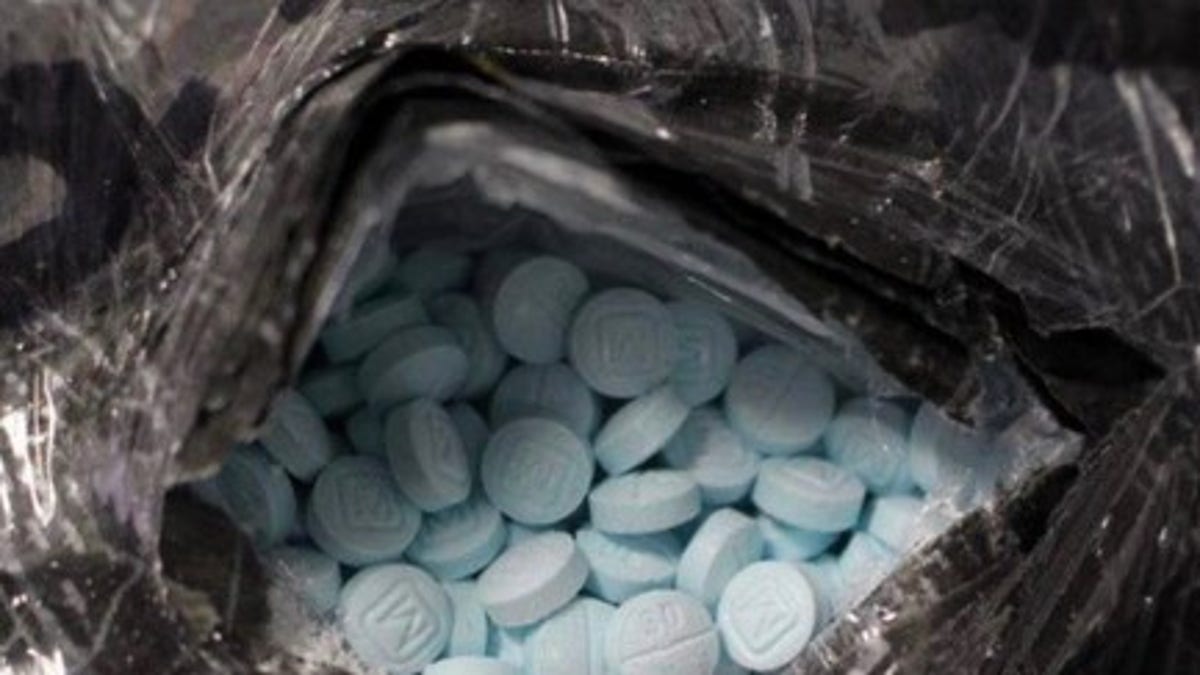Arizona woman sentenced to 12 years for smuggling, dealing deadly fentanyl-laced drugs to friends issues warning
Fox News' William La Jeunesse reports on Jocelyn Sanchez, who is serving 12 years in federal prison for giving fentanyl-laced pills that were smuggled across the Mexican border to friends who overdosed, as she issues a warning from jail.
Port of Nogales, Arizona border patrol agents stopped over 1.2 million fentanyl pills and four pounds of fentanyl powder from entering the United States on Wednesday.
Port Director Michael W. Humphries of the U.S. Customs and Border Protection gave a breakdown of the drug acquisition on Thursday.

U.S. Customs and Border Protection agents seized over 1.2 million fentanyl pills between two busts on Wednesday. (U.S. Customs and Border Protection)
"CBP officers stopped two loads on Wednesday," Humphries said on Twitter. "First load contained approx. 541,000 fentanyl pills, 4 lbs fentanyl powder and 37.55 lbs of meth concealed in doors and rear panels of cars. Seven hours later, approx. 689,200 fentanyl pills were found hidden throughout a vehicle."
ARIZONA BORDER OFFICERS FIND MORE THAN 700,000 FENTANYL PILLS HIDDEN IN TRAIN ARRIVING FROM MEXICO
Just five days earlier, Humphries reported a seizure of 230,600 fentanyl pills in the spare tire of a wheel well of a car, and another 832,000 fentanyl pills in a different vehicle trying to enter the U.S. through the Port of Nogales.
Fentanyl seizures at the U.S. border with Mexico have continued to surge this year.
U.S. Attorney Randy Grossman issued a press release in August, saying, "The amount of fentanyl we are seizing at the border is staggering."
BORDER PATROL UNION PRESIDENT SAYS AGENTS FEEL ‘COMPLETELY DEFEATED’ AHEAD OF TITLE 42'S END
The comments came as the Justice Department revealed that several ports in Southern California were at the center of a surge in fentanyl seizures at the border, where roughly 60% of seizures of the deadly drug took place in 2022.
But that rise has been seen at ports all along the border, with law enforcement agencies on both sides of the southern border making record busts in 2022.
CLICK HERE TO GET THE FOX NEWS APP
Law enforcement officials have warned of a spike in deaths linked to the illicit drug — which is 100 times more potent than morphine and can be fatal in tiny amounts. The drug is created primarily in Mexico using precursors from China, and it is then transferred across the land border of the U.S.



